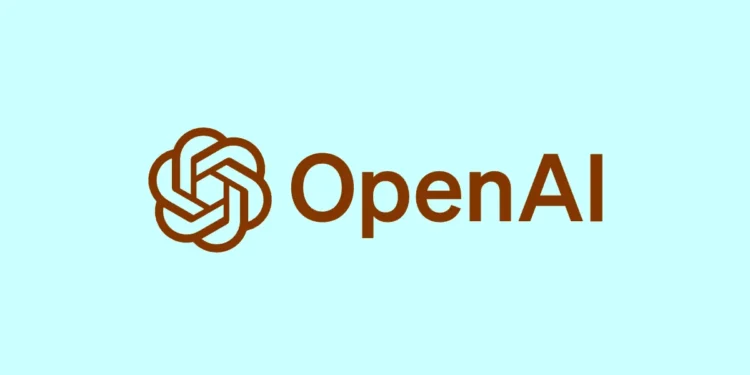The race to dominate AI-powered commerce just intensified, and OpenAI is making some seriously smart moves
In the chess game of artificial intelligence, every move matters. This week, OpenAI made a calculated play that might seem small on the surface but could reshape how we shop, discover, and interact with products online forever.
The news broke quietly on Thursday: Crossing Minds, a promising AI recommendation startup, announced that its entire team was joining OpenAI. While the tech world was buzzing about the latest LLM benchmarks and AI safety debates, this acquisition flew under the radar of most headlines. But here’s why you should pay attention this isn’t just another talent grab. It’s a strategic masterstroke that reveals OpenAI’s vision for the future of commerce.
The Hidden Goldmine of Recommendation Systems
Let’s start with what Crossing Minds actually built. On paper, they were “just another” recommendation engine company. But dig deeper, and you’ll discover they weren’t playing in the shallow end of the personalization pool.
Crossing Minds had cracked something that e-commerce giants have been throwing billions at for years: truly intelligent product discovery that doesn’t creep out customers. Their secret sauce? A privacy-first approach to understanding shopping behavior that could analyze what you want without knowing who you are.
Think about that for a moment. In an era where consumers are increasingly privacy-conscious and data regulations are tightening globally, Crossing Minds had developed technology that could deliver Amazon-level personalization without the Amazon-level data collection. That’s not just valuable. It’s revolutionary.
The startup’s client roster tells the story better than any pitch deck could: Intuit, Anthropic, Udacity, and Chanel. These aren’t companies that experiment with unproven technology. They’re organizations that bet on solutions that actually work.
Follow the Money and the Talent
The acquisition becomes even more intriguing when you follow the breadcrumbs. Crossing Minds had raised over $13.5 million from heavyweight investors including Index Ventures, Shopify, Plug and Play, and Radical Ventures. These firms don’t write checks for incremental improvements. They fund potential paradigm shifts.
But here’s the real tell: Alexandre Robicquet, one of Crossing Minds’ co-founders, updated his LinkedIn to read “Research, Post-training and Agents at OpenAI.” That’s not the bio of someone joining a generic AI team. That’s the profile of someone who’s going to be working on OpenAI’s most advanced systems—the ones that will power the next generation of AI agents.
The Commerce Revolution Hiding in Plain Sight
To understand why this matters, you need to zoom out and look at what’s really happening in AI-powered commerce. We’re not just talking about better product recommendations. We’re talking about the complete transformation of how humans discover, evaluate, and purchase products.
Google and Perplexity have already launched AI features that revolutionize product search. Startups like Daydream are attracting massive investments to build AI shopping assistants that can understand context, preferences, and intent in ways that traditional e-commerce platforms never could.
But OpenAI was missing a crucial piece of this puzzle. ChatGPT could already provide product recommendations, images, and reviews when asked. But it lacked the sophisticated understanding of user behavior and preference modeling that could make those recommendations truly intelligent and personalized.
Enter Crossing Minds.
Why This Acquisition Changes Everything
The integration of Crossing Minds’ technology into OpenAI’s ecosystem isn’t just about making ChatGPT a better shopping assistant. It’s about creating something far more ambitious: an AI that understands commerce at a fundamental level.
Imagine ChatGPT powered not just by vast language understanding, but by deep insights into how humans actually behave when they shop. An AI that doesn’t just know what products exist, but understands the subtle preferences, seasonal patterns, and contextual needs that drive purchasing decisions.
This isn’t science fiction it’s the logical next step in AI development. And OpenAI just acquired the team that’s been building exactly this technology for years.
What This Means for Everyone Else
For other AI companies, this acquisition should be a wake-up call. OpenAI isn’t just building better language models they’re building the infrastructure for AI to participate in the real economy. Companies that thought they had time to catch up in AI commerce capabilities just saw their runway get much shorter.
For businesses, especially those in e-commerce, this signals that the next wave of AI tools won’t just be about automation they’ll be about intelligence. The companies that succeed will be those that can integrate AI that truly understands their customers, not just processes their data.
For consumers, we’re looking at a future where shopping becomes less about searching and more about conversation. Where AI doesn’t just show you what’s popular, but understands what you actually need, sometimes before you do.
The Strategic Implications
This acquisition reveals something crucial about OpenAI’s strategy: they’re not just trying to build the best AI model they’re trying to build AI that can participate meaningfully in human economic life. And commerce is the perfect starting point.
Think about it: every day, billions of people make purchasing decisions that involve complex preference modeling, constraint satisfaction, and multi-objective optimization. These are exactly the kinds of problems that advanced AI systems excel at solving. By acquiring Crossing Minds, OpenAI gained not just technology, but deep expertise in applying AI to one of humanity’s most universal activities.
What Comes Next?
The integration of Crossing Minds’ team into OpenAI is just the beginning. Watch for announcements about enhanced shopping capabilities in ChatGPT, new API endpoints for e-commerce applications, and partnerships with major retail platforms.
More importantly, watch for the emergence of AI agents that can handle complex, multi-step commerce tasks. The technology foundation is now in place for AI systems that can research, evaluate, negotiate, and purchase products with a level of sophistication that matches or exceeds human capability.
The Bottom Line
The Crossing Minds acquisition might not have generated the headlines of OpenAI’s other announcements, but it might be one of their most strategically important moves yet. In a world where AI capabilities are rapidly commoditizing, the companies that win will be those that can apply AI most effectively to real human needs.
Commerce is one of humanity’s most fundamental activities, and OpenAI just signaled that they intend to own the AI layer of how we buy and sell in the future. For a company whose stated mission is to ensure AGI benefits all of humanity, there’s perhaps no better place to start than with the systems that connect human needs with human solutions.
The age of AI commerce isn’t coming it’s here. And OpenAI just made sure they’ll be the ones defining what it looks like.
What do you think about OpenAI’s move into AI-powered commerce? How will this change the way you shop and discover products? Share your thoughts in the comments below.
This article was rewritten with the aid of AI
At Techsoma, we embrace AI and understand our role in providing context, driving narrative and changing culture.













